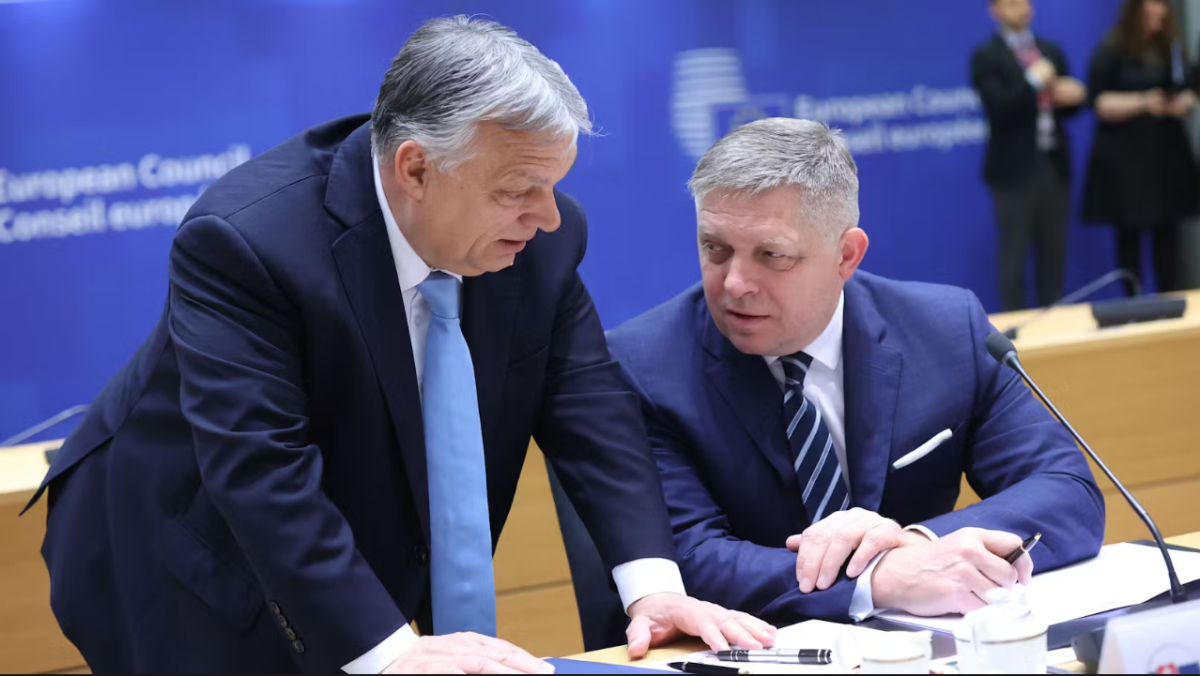On May 12, Hungary took another step down the road of democratic decline. A bill introduced in Parliament by Fidesz MP János Halász—and misleadingly titled “On the Transparency of Public Life”— would grant a newly established state body sweeping powers to sanction NGOs, freeze their bank accounts, and effectively blacklist them as threats to national sovereignty.
After protests and criticism from civil society, the European Commission, and the Council of Europe, the ruling party postponed the final vote until after the summer recess, without setting a new date. Still, the threat remains, and its implications reach far beyond Hungary.
This brazen proposal is more than just the latest assault on civil society. It reflects a deepening regional model of repression that targets not only human rights organizations and watchdog groups, but also the cultural and artistic spaces where dissent, pluralism, and minority expression often take root. In neighbouring Slovakia — where anti-NGO rhetoric and efforts to politicize cultural institutions are already gaining traction — Hungary’s blueprint has now found a dangerous imitator.
The European Union faces a stark question: will it act while there is still time to prevent another democratic unravelling?
Under the proposed law, Hungary’s new Office for the Protection of Sovereignty could place any foreign-funded organization it deems a threat to national sovereignty on a blacklist. This could trigger sanctions such as frozen bank accounts, removal from official registries, and loss of eligibility for public funding. Though framed as a transparency measure, the bill is clearly intended to intimidate and sideline dissenting voices.
Hungary’s move is part of a wider trend. Across the region, “foreign agent” laws have become tools for democratic backsliding. Russia pioneered this approach, forcing NGOs to register as “foreign agents,” subjecting them to public stigma and harassment. Belarus followed with criminal penalties for foreign-funded groups. In Poland, the former Law and Justice government advanced similar rhetoric—especially against LGBTQ+ and gender rights organizations—before the threat receded under Donald Tusk’s administration. Georgia’s foreign agent law sparked mass protests in 2023, but has since been revived in 2025.
Slovakia was the latest country to adopt a controversial NGO bill when, on May 7, President Peter Pellegrini signed into law amendments to “Act No.213/1997.” While modelled on earlier “foreign agent” laws such as Hungary’s, Slovakia adopted an insidious rebranding, omitting explicit terms like “foreign agent” or “lobbyist”. Yet this rhetorical softening does little to mask the law’s underlying intent. The adopted legislation still raises serious concerns—both for its substantive provisions and the opaque, expedited manner in which it was enacted.
"If Slovakia continues down this path—especially by enacting foreign funding laws designed to stigmatize dissent—it risks replicating not just Hungary's legal model, but its broader democratic decline."
Rushed through parliament with minimal consultation, the law imposes burdensome reporting requirements and unlimited fines for non-compliance, while lacking safeguards for donors’ privacy and due process. Despite its sanitized language, the law replicates the stigmatizing and repressive logic of illiberal regimes. Legal experts warn it may breach both EU obligations and constitutional safeguards.
Illiberal regimes have long used the “foreign agent” laws not only to suppress civil society, but to target independent arts organizations and cultural institutions—key civic spaces for pluralism, critical discourse, and minority expression. We documented this pattern in Early Warning: The Politicization of Arts and Culture in Slovakia, a report we co-authored for Artistic Freedom Initiative. It shows how Slovakia’s civic art spaces have come under sustained pressure from state authorities seeking to control cultural narratives.
Minister of Culture Martina Šimkovičová has led this charge, publicly attacking “foreign influences” and denouncing what she calls “LGBTQ+ propaganda” in the arts. Her rhetoric mirrors foreign agent crackdowns, portraying artists as ideological threats backed by outside forces and framing independent arts institutions as foreign-funded vehicles for progressive agendas that undermine national identity.

Why does this matter? Because these laws are not about transparency—they're about control. And the cultural sector is becoming a key battleground. Hungary offers a sobering example of how “foreign agent” laws can be weaponized against the cultural sector and shows where Slovakia may be headed. Over the past decade, the government has methodically reshaped the country’s arts and cultural institutions—replacing leadership at museums and theatres, dismantling state funding bodies, and redirecting support toward party-defined cultural priorities. Arts NGOs that depict LGBTQ+ identity or minority viewpoints have been defunded, sidelined, or publicly condemned.
Independent cultural organizations now face a no-win scenario: state funding may require conformity with the government's nationalist agenda, but international support, even by official EU institutions, can trigger vilification, regulatory scrutiny, or loss of NGO status. In this tightening vice, artists and arts NGOs are forced to choose between survival and silence. The result is a chilling effect not only on individual expression, but on the very pluralism that democratic societies rely on to remain open, vibrant, and self-critical.
Slovakia stands at a critical juncture. The infrastructure of repression is already being assembled, and rhetoric that once seemed fringe is now shaping national policy. Hungary shows where this road leads: to the systematic hollowing out of civil society, the co-optation of independent cultural institutions by governments to advance their political agendas, and, ultimately, the silencing of pluralism.
If Slovakia continues down this path—especially by enacting foreign funding laws designed to stigmatize dissent—it risks replicating not just Hungary’s legal model, but its broader democratic decline. The EU cannot afford to wait and see where this is headed. The warning signs are clear, and it must act decisively to halt this dangerous model from taking deeper root and spreading across the region.


-Sanjay Sethi, co-executive director of Artistic Freedom Initiative (AFI), has dedicated his career to international human rights law, specializing in freedom of expression and asylum and refugee law.
-Jennifer Laourou is an Officer for Global Policy & Advocacy at AFI.
-Artistic Freedom Initiative ( AFI) is an NGO supporting artists at risk by providing legal aid and resettlement assistance. It is funded by institutional donors and individual contributions. You can find out more at https://artisticfreedominitiative.org/
Image from Haute.at, CC BY 4.0
Image 2 created with Chat GPT
--
Disclaimer: The opinions expressed in this Op-Ed are those of the authors. They do not purport to reflect the opinions or views of the Creatives Unite editorial team.











